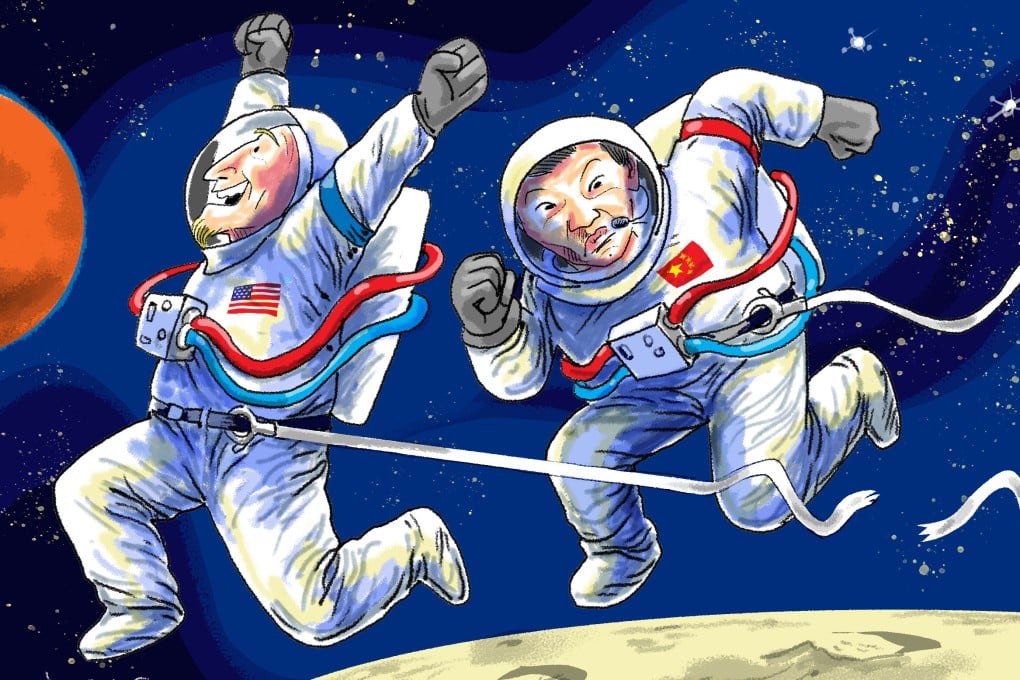Opinion | To avoid the folly of a US-China space race, the two competitors should learn some Soviet-era cooperation
- Unlike Washington, which bars Chinese astronauts from the International Space Station, Beijing is more open-minded about space cooperation with other nations
- Perhaps the way out of potential conflict is recognising mutually assured vulnerability that leads to a treaty agreeing not to deploy weapons in outer space

In outer space, all issues basically boil down to two categories: peaceful use and demilitarisation of space. No matter how desirable the former sounds, the latter is the real challenge. US Secretary of Defence Lloyd Austin described space as “an arena of great power competition”.
But, during the Cold War, the United States and Soviet Union managed to cooperate on the Apollo-Soyuz Test Project, the first international partnership in space. On July 17, 1975, an American Apollo spacecraft, launched two days earlier, docked with a Soviet Soyuz spacecraft.
Sadly, this won’t happen between China and the US, the two largest economies today. The Wolf Amendment limits US government agencies such as Nasa from working with Chinese commercial or governmental agencies. However, a prosperous China can afford to invest lavishly in a domestic space industry that is self-propelled and sustainable.
Unlike Washington, which does not allow Chinese astronauts into the US-built International Space Station, Beijing appears more open-minded about space cooperation with other nations.

